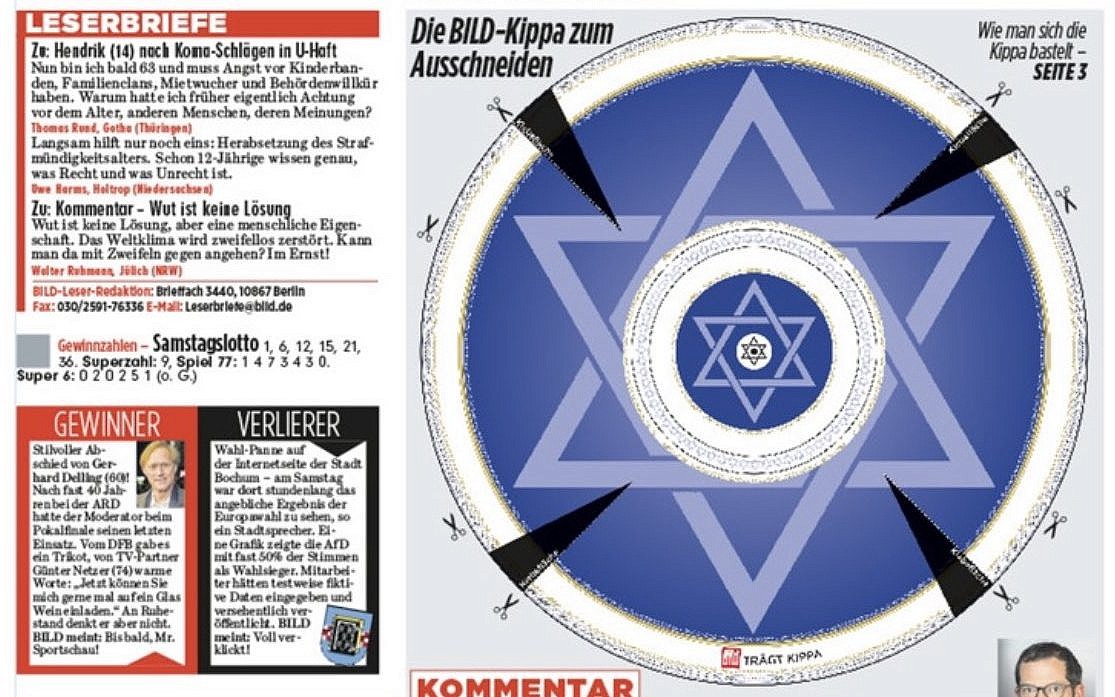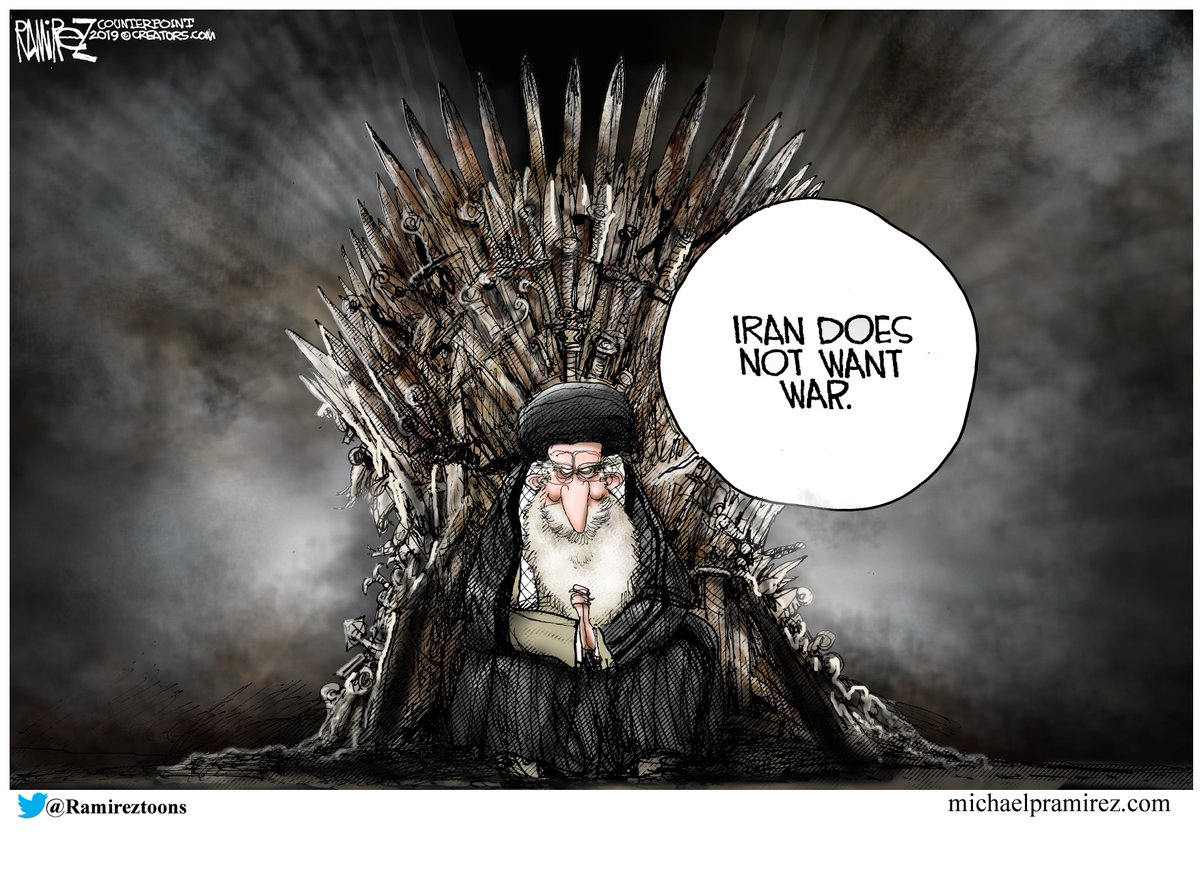Top German paper to print cutout kippah in solidarity with Jews
The editor of Bild, Germany’s largest newspaper, on Sunday said he will print a Jewish skullcap on the front page of the Monday paper so that Germans can cut it out and wear it in solidarity with the local Jewish community.
The protest comes days after the government official in charge of fighting anti-Semitism said he wouldn’t advise Jews to wear the traditional Jewish head-covering in parts of the country.
“If even one person in our country can’t wear a kippah without putting themselves in danger, the only answer is that we all wear a kippah,” Bild’s editor-in-chief Julian Reichelt tweeted. “The kippah belongs to Germany! That’s why tomorrow the kippah will be printed for cutting out on page one.”
Reichelt tweeted a photo of the mockup of the Monday morning edition cover page, which features an editorial and the stylized Star of David skullcap, called a kippah in Hebrew.
On Saturday, German anti-Semitism czar Felix Klein said his “opinion has unfortunately changed compared with what it used to be” on the matter. He said: “I cannot recommend to Jews that they wear the skullcap at all times everywhere in Germany.” He did not elaborate on what places and times might pose a danger.
U.S. ambassador urges Jews in Germany to wear kippot and not conceal identity
The US government’s most high-profile ambassador in Europe, Richard Grenell, said Jews in Germany should not conceal their religious identity, and urged them to wear kippot in defiance of a statement from Germany’s commissioner to combat antisemitism that Jews should avoid wearing kippot in public.German chancellor Merkel commits to ensuring security for Jews with kippahs
“The opposite is true,” tweeted Grenell, the US ambassador to Germany. “Wear your kippa. Wear your friend’s kippa. Borrow a kippa and wear it for our Jewish neighbors. Educate people that we are a diverse society.”
On Saturday, Felix Klein, the federal government Commissioner for Jewish Life in Germany and the Fight against Antisemitism, told the Funk media group, “My opinion on the matter has changed following the ongoing brutalization in German society. I can no longer recommend Jews wear a kippah at every time and place in Germany.”
President Reuven Rivlin reacted on Sunday, saying “The statement of the German government’s antisemitism commissioner – that it would be preferable for Jews not to wear a kippah in Germany out of fear for their safety – shocked me deeply. Responsibility for the welfare, the freedom and the right to religious belief of every member of the German Jewish community, is in the hands of the German government and its law enforcement agencies. We acknowledge and appreciate the moral position of the German government, and its commitment to the Jewish community that lives there, but fears about the security of German Jews are a capitulation to antisemitism and an admittance that, again, Jews are not safe on German soil.
“We will never submit, will never lower our gaze, and will never react to antisemitism with defeatism – and we expect and demand our allies act in the same way.”
German Chancellor Angela Merkel’s spokesman on Monday stressed the country’s responsibility to ensure security for all Jews wearing kippahs anywhere in the country without having to fear an anti-Semitic attack.
“It’s the job of the state to ensure that anybody can move around securely with a skullcap in any place of our country,” Steffen Seibert said.
The comments came after the government’s anti-Semitism commissioner, Felix Klein, said he wouldn’t advise Jews to wear the traditional Jewish head-covering in parts of the country.
Felix Klein said his “opinion has unfortunately changed compared with what it used to be” on the matter. He said: “I cannot recommend to Jews that they wear the skullcap at all times everywhere in Germany.” He did not elaborate on what places and times might pose a danger.
Government statistics released earlier this month showed that the number of anti-Semitic and anti-foreigner incidents rose in Germany last year, despite an overall drop in politically motivated crimes.















































.jpg)





